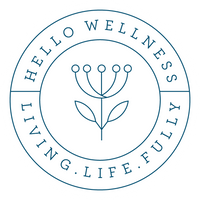Wellness
The Transformative Power of Gratitude
By Aquib Sylvester on Nov 23, 2023

“Be present in all things and thankful for all things.”
Maya Angelou
What is Gratitude
Gratitude, in its essence, is acknowledging what you have by using it in the best way. As such, we must first know that we were given, and then reciprocate that fact by giving. A grateful mindset acknowledges all good in their life and recognizes The Source of that goodness as a reality external to oneself. This gives you a holistic transcending view of yourself and the world. It is the impetus of wellness, propelling the pursuit of activities and relationships of fulfillment and satisfaction. Going beyond just appreciating the good, it is the intentional effort to seek it and use it. This practice ultimately produces the realization of abundance, knowing that your blessings are countless and your capacity is limitless.
Ancient Wisdom
Knowledge of gratitude's transformative quality is somewhat primordial. In ancient Egypt, the fundamental order and balance of the universe was defined as Ma'at. Living by Ma'at was considered essential for a prosperous and stable society. Gratitude was the vital aspect of maintaining Ma'at while ingratitude leads to deeds of negativity and instability.
Across various religions and spiritual traditions, gratitude is recognized as a virtue that connects observants to the transcend. In Christianity, Islam, Judaism, Buddhism, and other faiths, expressions of gratitude are embedded in rituals, prayers, and teachings, evident in their central text. The Qur'an details unavoidable bipolar ways man must journey in life, one of either gratefulness or ingratitude.⁵ In the Psalm, readers are invited to approach God with gratitude.² The common thread is the acknowledgment of blessings and the importance of expressing thanks to The Divine.
Across various religions and spiritual traditions, gratitude is recognized as a virtue that connects observants to the transcend. In Christianity, Islam, Judaism, Buddhism, and other faiths, expressions of gratitude are embedded in rituals, prayers, and teachings, evident in their central text. The Qur'an details unavoidable bipolar ways man must journey in life, one of either gratefulness or ingratitude.⁵ In the Psalm, readers are invited to approach God with gratitude.² The common thread is the acknowledgment of blessings and the importance of expressing thanks to The Divine.
Gratitude and Science
Modern science echoes these ancient insights, revealing the empirical benefits of practicing gratitude. Numerous research studies explored its effects have shown that gratitude can lead to improved mental health, increased life satisfaction, and reduced stress. In a study published in the International Journal of Applied Positive Psychology, researchers explore the role of gratitude suggesting that “maintains positive emotions resulting from a positive experience.”⁵ In another study published in the Journal of School Psychology, the impact of a gratitude intervention on subjective well-being in early adolescents was studied. It revealed that the results "indicated that counting blessings was associated with enhanced self-reported gratitude, optimism, life satisfaction, and decreased negative affect."³


Thanksgiving
Thanksgiving serves as an opportune time to cultivate gratitude in our lives. Some simple yet impactful ways to embrace gratitude:
Keep a Gratitude Journal - Dedicate a few minutes each day to jot down things you are grateful for and how you can use them impactfully. Reflect on both significant and small moments of joy and ways to share it with others.
Express Appreciation to Others - Let friends, family, and colleagues know that you appreciate them and why. Use the formula of saying thank you for something, explaining why it was impactful to you, and then concluding with another thank is a simple heartfelt way to express appreciation to others.
Practice Mindfulness - Pay attention to the present moment, savoring the positive experiences in your day.
Reciprocate The Blessing - Engage in acts of kindness, support, and generosity. Helping others deepens your sense of gratitude and connection.
Keep a Gratitude Journal - Dedicate a few minutes each day to jot down things you are grateful for and how you can use them impactfully. Reflect on both significant and small moments of joy and ways to share it with others.
Express Appreciation to Others - Let friends, family, and colleagues know that you appreciate them and why. Use the formula of saying thank you for something, explaining why it was impactful to you, and then concluding with another thank is a simple heartfelt way to express appreciation to others.
Practice Mindfulness - Pay attention to the present moment, savoring the positive experiences in your day.
Reciprocate The Blessing - Engage in acts of kindness, support, and generosity. Helping others deepens your sense of gratitude and connection.
The Takeaway
In an ever-evolving world characterized by attention currency and information inundation, the value of gratitude remains dependable and constant to wellness. By acknowledging the goodness in our lives, drawing on ancient wisdom, and embracing scientific insights, we unlock a source of joy and well-being that can positively influence every aspect of our existence. This Thanksgiving, let gratitude be the centerpiece that enriches your life and the lives of those around you.In an ever-evolving world characterized by attention currency and information inundation, the value of gratitude remains dependable and constant to wellness. By acknowledging the goodness in our lives, drawing on ancient wisdom, and embracing scientific insights, we unlock a source of joy and well-being that can positively influence every aspect of our existence. This Thanksgiving, let gratitude be the centerpiece that enriches your life and the lives of those around you.
References
- https://www.worldhistory.org
- Psalm 100:4, 107:1 (NIV)
- Pubmed
- Quran 76:3
- The Impact of an Integrated Gratitude Intervention on Positive Affect and Coping Resources (researchgate.net)
You Might Also Like
The Transformative Power of Gratitude
After learning gratitude's true meaning, ancient application, and scientific evidence testifying to its effectiveness, you will be motivated to use this uncanny...
A blog can be used to talk about new product launches, tips, or other news you want to share with your customers.
Read more
The Transformative Power of Gratitude
After learning gratitude's true meaning, ancient application, and scientific evidence testifying to its effectiveness, you will be motivated to use this uncanny...
A blog can be used to talk about new product launches, tips, or other news you want to share with your customers.
Read more
The Transformative Power of Gratitude
After learning gratitude's true meaning, ancient application, and scientific evidence testifying to its effectiveness, you will be motivated to use this uncanny...
A blog can be used to talk about new product launches, tips, or other news you want to share with your customers.
Read more





